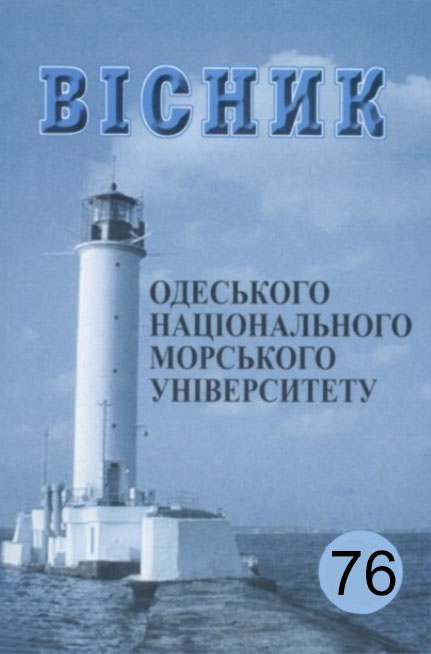Application of the deformable coordinate method to the determination of finite amplitude’s wave characteristics in deep water and shallow water
Main Article Content
Abstract
Specifics of defining characteristics for finite amplitude waves with the help of deformed coordinates method for deep water and shallowness are shown. Comparison of shallow water wave profiles for proposed approximate theory, Stokes and cnoidal theories is introduced. The study of wave movements on the free surface of the waters of seas and oceans develops in four directions: hydrodynamic, energetic, statistical and spectral based on the use of theoretical and experimental methods. The essence of the hydrodynamic theory of waves is the mathematical study of the wave motions of an ideal fluid with a free surface. This theory makes it possible to accurately assess the internal dynamic structure of wave motion, the connections between individual elements of waves. The answer to one of the main questions in the theory of sea waves: why does a barely noticeable wind ripple under the action of a strong wind grow in the ocean spaces into giant waves and what mechanism of their extinguishing allows the energy theory to be obtained? A distinctive feature of sea waves is the complexity and known chaos of the structure of the agitated surface. The study of this issue is conducted from two points of view. On the one hand, the statistical laws of the distribution of the directly observable elements of waves-heights, periods, and lengths are studied; on the other hand, the internal spectral structure of the surface, its energy spectrum, is studied.
Article Details
References
2. Skjelbreia L., Hendrickson J. Fifth order gravity wave theory. Proc. 7th Coastal Engineering Conference. The Hague, 2018.
3. Fenton J.D. Nonlinear wave theories. The Sea, Vol. 9: Ocean Engineering Science / B. Le Mehaute, D.M. Hanes, Eds. Wiley, New York, 2008.
4. Kinnas A.S. Notes on fifth-order gravity wave theory. Fundamentals of offshore structures and design of fixed offshore platforms / OTRC/UT Austin, 2007.
5. 5.Didur V.A., Zhuravel D.P., Palishkin M.A., Mytsenko A.V., Borkha- lenko Yu.O. Hydraulics: textbook. Odesa, 2020.
6. Fenton J.D. The cnoidal theory of water waves. Developments In Offshore Engineering: Wave Phenomena And Offshore Topics / Herbich J.B., Editor. Gulf Publishing Company, 2012.
7. Galkina O.P. Engineering hydraulics: lecture notes. Kharkiv: KhNUMG named after O.M. Beketov, 2020.
8. Fedorova K.Yu. Approximate hydrodynamic theory of progressive waves of finite amplitude. Bulletin of ONMU. Odesa: Publishing house of ODMU, 1998. No. 1.
9. Fedorova K.Yu. Development of methods for solving the problem of progressive waves of finite amplitude. Bulletin of ONMU. Odesa: Publishing house of ODMU, 1998. No. 1.
10. Fedorova K.Yu., Andreevska G.M. Hydraulics: navi. manual. Odesa: FOP Bondarenko M.O., 2023.
